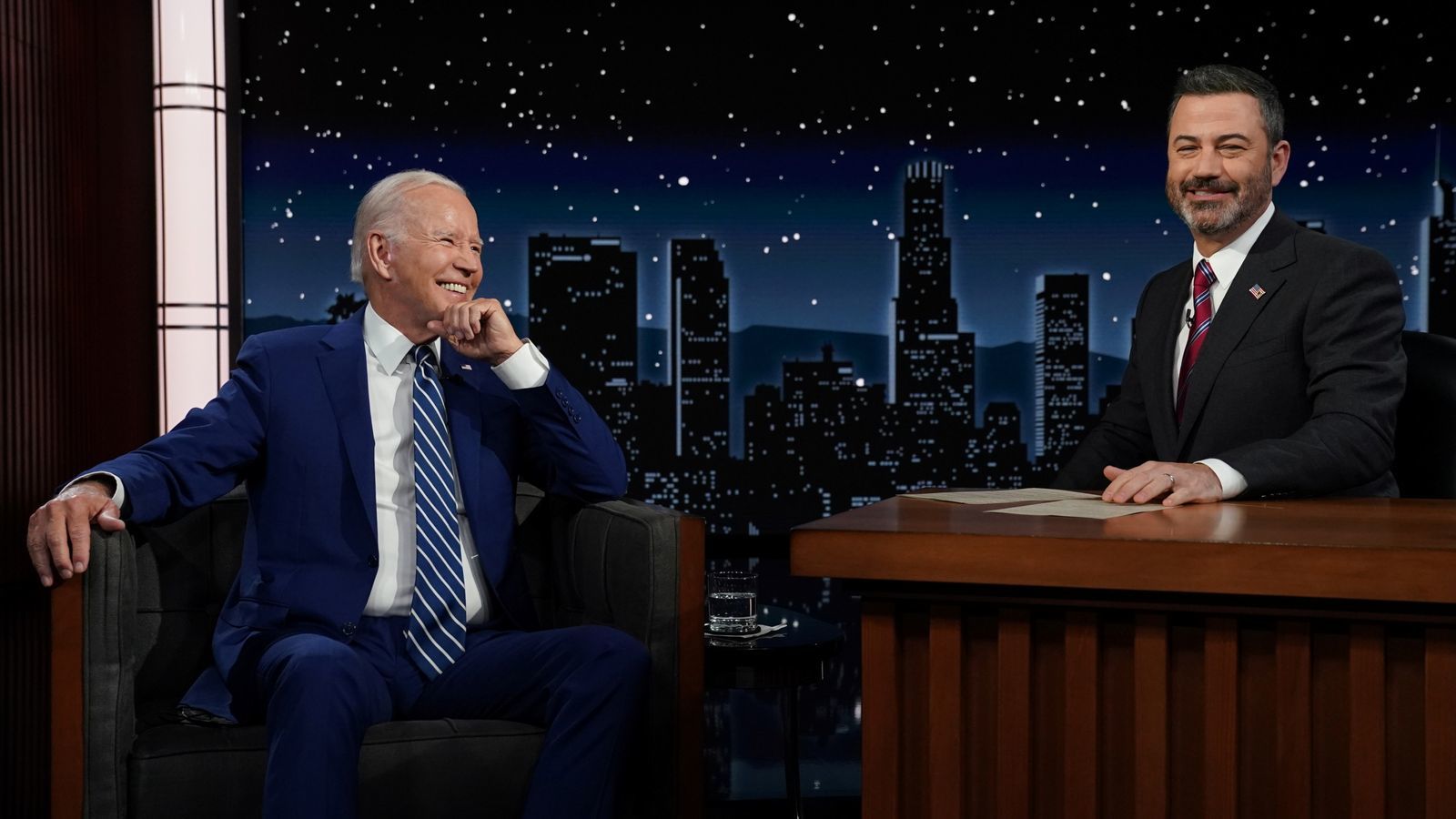
Writers Guild Of America votes to strike after talks with Hollywood studios fail
Television and movie writers are going on strike for the first time in 15 years in a dispute over fair pay in the streaming era.
The Writers Guild of America (WGA) said its 11,500 unionised screenwriters will head to the picket lines on Tuesday.
Negotiations between studios and the writers, which began in March, failed to reach a new contract before the writers' current deal expired.
All script writing is to immediately cease, the guild informed its members.
The dispute could hit TV and film productions depending on how long the strike lasts.
 President Joe Biden on Jimmy Kimmel Live last year
President Joe Biden on Jimmy Kimmel Live last year
Late-night US talk shows such as Jimmy Kimmel Live and The Tonight Show with Jimmy Fallon are expected to go dark immediately and air re-runs.
Next to be disrupted could be daytime soap operas since they are traditionally written not long before they are filmed.
Primetime comedies and dramas currently on air should be able to wrap up seasons uninterrupted - their episodes for the coming weeks will have already been written and filmed.
Netflix, which makes shows around the world, has said it can feed its service with shows produced outside the United States, but its US-based series will be affected if a strike drags on.
The board of directors for the WGA, which includes both a West and an East branch, voted unanimously to call for a strike.
"The companies' behaviour has created a gig economy inside a union workforce, and their immovable stance in this negotiation has betrayed a commitment to further devaluing the profession of writing," the WGA said in a statement.
"From their refusal to guarantee any level of weekly employment in episodic television, to the creation of a 'day rate' in comedy variety, to their stonewalling on free work for screenwriters and on AI for all writers, they have closed the door on their labour force and opened the door to writing as an entirely freelance profession.
"No such deal could ever be contemplated by this membership."
The Alliance of Motion Picture and Television Producers (AMPTP), the trade association that bargains on behalf of studios and production companies, said negotiations fell short of an agreement before the current contract expired.
In a statement, the AMPTP said it was prepared to improve its offer "but was unwilling to do so because of the magnitude of other proposals still on the table that the guild continues to insist upon".
Writers say they have suffered financially during the streaming TV boom, in part due to shorter seasons and smaller
residual payments.
They are seeking pay increases and changes to industry practices they say force them to work more for less money.
Half of TV series writers now work at minimum salary levels, compared with one-third in the 2013-14 season, according to Guild statistics.
Artificial intelligence is another issue at the bargaining table. The WGA wants safeguards to prevent studios from using AI to generate new scripts from writers' previous work.
The last WGA strike, in 2007 and 2008, lasted 100 days. The action cost the California economy an estimated $2.1bn (£1.68bn) as productions shut down and out-of-work writers, actors and producers cut back spending.











